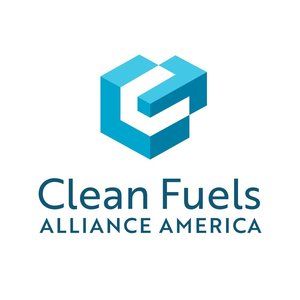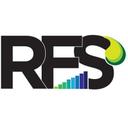Clean Fuels urges Treasury to immediately issue 45Z guidance and safe harbors

August 28, 2024
BY Clean Fuels Alliance America
Today, Clean Fuels Alliance America sent a letter to Treasury Secretary Janet Yellen, urging the agency to issue guidance, including safe harbors, to the §45Z Clean Fuels Production Credit by Sept. 1. The new producer credit becomes available on Jan. 1, 2025, as the existing blender credit expires. Clean Fuels’ letter emphasizes the difficulties that farmers, producers, and fuel marketers are facing in making the transition without guidance on the rules.
“We appreciate that Treasury understands the importance of having guidance for the section 45Z Clean Fuel Production credit well in advance of January 1, 2025, so farmers, producers and fuel customers have the certainty to continue to produce, sell, and use low-carbon biomass-based diesel,” Clean Fuels writes. “U.S. biodiesel, renewable diesel, and sustainable aviation fuel (SAF) producers are facing difficulties finalizing feedstock contracts, securing capital flows, and meeting project deadlines without knowing the value of the credit. The need for policy certainty is urgent.”
Clean Fuels is requesting Treasury issue safe harbor provisions allowing taxpayers to rely on existing carbon life-cycle assessments – from the most recent R&D GREET model, or the federal RFS, or California’s LCFS – to calculate the §45Z credit until a final rule is in effect. Clean Fuels also asks for clarity on multiple issues, including climate smart ag practices and clean fuels used in home heating.
Kurt Kovarik, Clean Fuels Vice President of Federal Affairs, added, “Farmers, fuel producers, and marketers need to know the new tax policy rules now to successfully navigate the transition at the start of the year. The industry must negotiate feedstock contracts and fuel offtake agreements at least a quarter year in advance. By September, the entire industry could come to a standstill without the ability to reliably calculate the tax credit value. Ongoing delays could undermine production of biodiesel, renewable diesel, and sustainable aviation fuel, sacrificing jobs, economic opportunities for farmers, and near-term carbon reductions.”
Advertisement
Advertisement
Advertisement
Advertisement
Related Stories
MOL Group has produced a diesel fuel containing hydrotreated vegetable oil (HVO), and sustainable aviation fuel (SAF) at the refinery of Slovnaft in Bratislava. The quality of the products has been verified by radioisotope analysis.
More than 1.76 billion renewable identification numbers (RINs) were generated under the Renewable Fuel Standard in January, down from 1.91 billion generated during the same period of 2024, according to data released by the U.S. EPA on Feb. 20.
The U.S. EPA on Feb. 20 released updated small refinery exemption (SRE) data showing that 13 previously denied SRE petitions for Renewable Fuel Standard compliance years 2021 and 2022 are being reconsidered. No new SRE petitions were filed.
A coalition of biofuel, agriculture, fuel retailer and petroleum trade groups on Feb. 19 sent a letter to U.S. EPA Administrator Lee Zeldin urging the agency to set robust, timely, multiyear RFS RVOs for 2026 and beyond.
OMV Petrom has announced the start of construction for a sustainable aviation fuel (SAF) and renewable diesel (HVO) production unit at the Petrobrazi refinery in Romania. The new facility will have an annual capacity of 250,000 tons.
Upcoming Events










